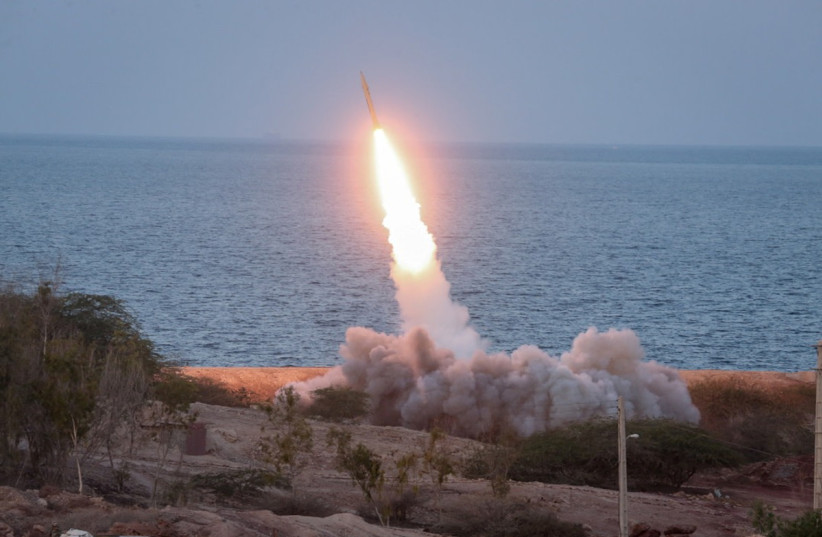Iran practiced with missiles, drones and other weapons during the second day of what it has dubbed the “17th Great Prophet” drills.
In this “stage of the exercise, surface-to-surface ballistic missiles hit predetermined targets,” according to Fars News and Tasnim News. Iran said it also “simulated floating targets of the hypothetical enemy that were destroyed by firing surface-to-surface and coast-to-sea missiles.”
Iran practices with coastal defenses to shoot down drones as well. In June 2019, it shot down a US Global Hawk drone, destroying around $200 million worth of American equipment in an incident that almost caused Washington to retaliate.
Iran claims that it conducted “special operations and infiltration at the operational and strategic level, conducting operations in conditions of biological warfare, and training air defense units under an integrated network were other activities of the second day of the joint training.”
In recent weeks, Iran has also tested air defenses over Natanz and Bushehr, facilities linked to its nuclear program. It is unclear why Iran is practicing for “biological warfare.”

According to the Iranian reports, the Islamic Revolutionary Guard Corps took part, and its commander, Hossein Salami, watched the drills alongside Maj.-Gen. Gholam Ali Rashid and “a group of commanders and experts of the General Staff of the Armed Forces.” This apparently shows coordination between the IRGC and the armed forces.
Iran says that it fired IRGC naval missiles and also anti-ship cruise missiles. In July, Iran used drones to attack a commercial tanker in the Gulf of Oman. It has experience harassing ships and mining them as well. In September 2019, it used cruise missiles to attack Saudi Arabia’s Abqaiq oil processing facility.
“As part of the drill, missile units from the coast and Zulfiqar-class high-speed vessels [were included] by simultaneously firing five anti-ship cruise missiles, successfully destroying the hypothetical enemy vessel,” it said.
Iran also used what it called “vertical bombs” fired by the IRGC Navy’s UAV unit to hit “fixed mobile land and sea targets.” This showed that drones could hit moving targets, likely a replay of what Iran did in July 2019. The Mohajer class of UAVs was used, the report said.
The Islamic Republic also used aircraft to bomb targets. It said it used the Soviet-era Sukhoi-22 fighter jets to hit ground targets.
“Following the main stage of the exercise, the IRGC Marine Units successfully hit the fast boats of the enemy forces in carrying out their coastal defense mission and countering the aggression of the hostile force,” Iran says.
Tehran also practiced with ballistic missiles against naval threats.
The operations will continue for five days, it says. This includes Hormozgan, Bushehr and Khuzestan provinces. Iran says it is preparing to deal with new threats and also “hybrid wars.”
